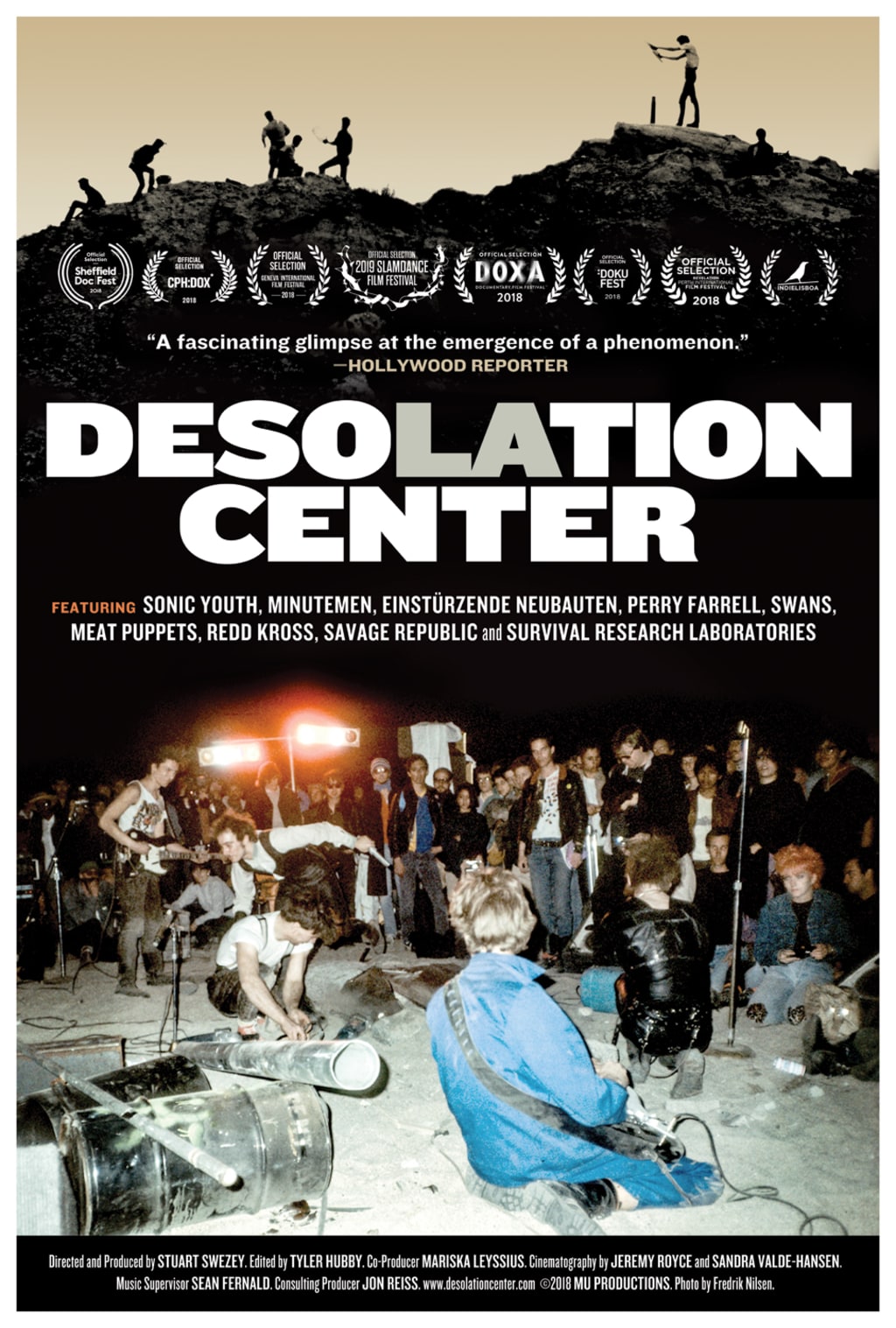Movie Review: 'Desolation Center' Doc Explores Guerilla Concerts of the 80s
The man whose ideas may have inspired Burning Man explores his wild true story.

Where did the idea of festivals mixing art and music come from? Some will credit Lollapalooza or Burning Man for creating this unique combination of art and music. But, the real origin of a truly punk festival of music and art may be Desolation Center. Director Stuart Swezey was the founder of Desolation Center in the 1970s and now, Swezey has taken the reigns to tell the story himself of the founding of a festival.
Desolation Center is your standard talking heads to camera documentary but with a strong subject, one that justifies the straightforward, documentary approach. In the 1970s, as punk rock was on the rise, a police state was growing in Los Angeles. Los Angeles Police Chief Daryl Gates hated young people and punk rock and made the LA punk scene into villains in the drug war.
This led Stuart Swezey and several friends in the Los Angeles punk scene to move out of the city. Desolation Center was born out of wanting to escape from the oppressive police presence dominating the areas around the punk rock clubs. The place for this escape? The Mojave Desert, where punk bands The Minutemen and Savage Republic would perform for a crowd bussed in from Los Angeles to stand in the desolate desert in a former riverbed and endure the elements to enjoy the music they loved.
Despite the wind and the heat and the dust, this first show in 1983 is remembered as a wonderful success. In the documentary, the people who were there, the concertgoers, recalled bonding with their fellow music lovers, with nature, and the music. It was a remarkable Do-It-Yourself concert that set a template for something that would become iconic in the small sphere of the LA punk and art scene.
Act 2 of Desolation Center explores the second desert concert which would take place in Box Canyon in an area of the desert known as Mecca. After having successfully brought punk to the desert, the second Desolation Center concert would bring Industrial Music and experimental art to the desert in the form of the German industrial band Einstürzende Neubauten and artist Mark Pauline, who made his reputation at the time for the loudest art show in history.
Pauline was legendary for explosions; he famously lost all but one finger on one of his hands while experimenting with rocket fuel for a show. Here, Pauline would not be confined by space, sound or safety standards and he did not disappoint with his frightening display. Director Stuart Swezey did a remarkable job of documenting the show and what we get is endlessly fascinating and engaging.
Fear was mixing with anarchy and anxiety, and amid this remarkable mix was art and music and the unifying nature of both. This second Desolation Center show remains unlike any documented concert experience I've ever heard of before or likely will ever hear of again. One of the talking head concertgoers notably mentions how generationally things have changed to the point where the kind of destruction and unsafe conditions would never be acceptable today.
Einstürzende Neubauten are what are referred to in the movie as Noise Artists. They make music by banging things together and making as much noise as possible in order to create something akin to music. As much as it sounds like chaos, and it was, the clips of this performance in Desolation Center create a compelling case that music is emerging from the banging on steel, the destruction of cinderblocks, the smashing together of rocks and the strange poetry of Einstürzende Neubauten's lead poet BLIXA BARGELD.
Desolation Center is absolutely remarkable. As much as it is a typically produced documentary, director Stuart Swezey mines his story to tell a remarkable tale that stands apart from the otherwise familiar documentary form. These wonderfully historic and mostly forgotten moments in the history of music and art are amazingly compelling.
If you love punk rock, outsider art, chaos or just plain anarchy, Desolation Center is the movie for you. Wildly compelling, odd and brilliant, Desolation Center tells a story that I'm shocked has never been told before. That likely comes from Stuart Swezey himself and the care he's take to care for his own legacy via control of the concert footage that provides so many compelling moments amid the memories shared by the talking head interviews.
I adore Desolation Center. It's no experiment in form but the story doesn't require experimentation, the story is of an experiment all its own. It was an experiment in the form of concert presentation like nothing we've seen before or likely will ever see again. The desert concerts have since become rather mainstream since the days of Desolation Center and the spirit has kind of drained away. It's nice to have this documentation that once there was this pioneering, punk rock spirit that perhaps may never exist again.
About the Creator
Sean Patrick
Hello, my name is Sean Patrick He/Him, and I am a film critic and podcast host for the I Hate Critics Movie Review Podcast I am a voting member of the Critics Choice Association, the group behind the annual Critics Choice Awards.






Comments
There are no comments for this story
Be the first to respond and start the conversation.